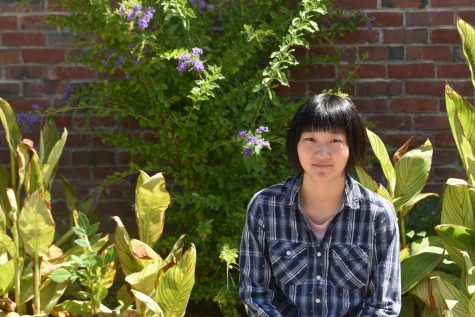Stan Twitter culture
Students share their perspectives on the benefits and the shortcomings of stan Twitter culture
September 15, 2018
“Stan Twitter.” The word “stan” is defined by Oxford Dictionary as an “overzealous or obsessive fan of a particular celebrity.” “Stan Twitter” refers to the individuals on Twitter who create accounts to follow celebrities and connect with others in the same fanbases. For junior Victoria Valdez, Twitter is a platform that enables her to be part of a community.
“Things that you’re dealing with, I feel like it [is] sometimes hard to talk about that out loud, so it might be easier to rant about it to a friend online,” Valdez said. “Sometimes in real life, you’re scared of how your friends are going to think about you or tell other people; you don’t have to worry about that as much online.”
Valdez also places an emphasis on how she can be herself without fear of judgement, something that is difficult to attain in a school setting.
“It gives you a place to vent and sometimes be yourself because people are really scared of the judgement you can face here at school,” Valdez said. “But online it’s people who are going through the same thing, so they can relate. And it’s good to have those people you can talk to [who] understand what you’re going through.”
people on stan twitter are actually so fucking funny like where are you all hiding because i cant find funny people like you in real life and everyone i know never get my jokes, its a sad life
— Sanna (@jmniau) September 15, 2018
Senior Naomi Tai made her Twitter account during her freshman year and similarly to Valdez, she found it easy to provide support to others online. Tai references “Life with Mak,” a 13-year-old girl who makes ASMR videos and has generated a fan base on Twitter.
“I just like how people use it to support random people on the Internet,” Tai said. “I like those kinds of things because it’s nice to see people on the Internet being wholesome.”
However, both of them agree that stan Twitter’s environment can be toxic. Valdez made her first account with the intention of being a part of the K-Pop community. However, Valdez deactivated it soon afterwards.
“I saw that people were constantly arguing … and it’s kind of the whole thing of not respecting other people’s opinions,” Valdez said. “I felt very passionate about my opinions so I was constantly voicing them, and I wasn’t afraid to stand up to people and say, ‘no I’m not gonna let you say things like that — it’s straight up offensive.’ I was getting into fights a lot and it led [to] me deactivating that account.”
Like Valdez, Junior Katherine Ma joined Twitter about a year ago to follow her friends and K-Pop group Beyond The Scene (BTS), but didn’t immediately encounter people having arguments on the platform.
“I mainly follow news accounts and translators, so I didn’t see a lot of the things that people were saying [and] their personal opinions until a lot later on,” Ma said. “And still, I don’t see a lot of that because I don’t follow that many people.”
However, Ma believes that Twitter’s reputation is no different to other social media platforms.
“I think some aspects of stan Twitter can get pretty toxic, but that just carries over because it’s a social media platform,” Ma said. “Just like any other platform, [it] can be toxic because of the people who decide to use it [to] cyberbully each other [and] spread false rumors.”
Tai thinks that the potential of tweets to “blow up,” resulting in hundreds upon thousands of likes and retweets, leads to more people who may take these popular tweets the wrong way.
“Some of them are fine, but some of them go super far,” Tai said. “I know this a problem for K-Pop especially, because I’ve seen questionable things … [But] I understand that there’s always going to be that nasty part because most of my friends stan BTS. I know [K-pop fans] are normal people, they just really like them.”
After Valdez deactivated her first account, she made another the following year after joining the fandom of the pop boy band PrettyMuch. However, Valdez said that there was a lot of arguing within the fandom when a screenshot of member Nick Mara saying the n-word circulated within the fanbase.
“It [happened] a long time ago but they were [people] still saying that he needs to apologize and there [were] people saying to let it go,” Valdez said. “It started to get really extreme as time went on, and the situation wasn’t addressed. Then they started getting really offensive about it [by] personally attacking the people rather than their opinions and that’s what I think is wrong.”
Similarly, Valdez believes this extremity is on all social media platforms, but also thinks that Twitter users are more confrontational, starting arguments that can get too far.
“If you’re going to say something, say what you have to say, but don’t attack the person themself or say things just to be offensive or just to get the last word in,” Valdez said.
https://twitter.com/winterodinsons/status/1040681275240181761?s=12
Tai mainly follows artists and has also seen her share of toxicity on Twitter — an artist she follows drew a transgender character gender-swapped. According to Tai, this act of drawing characters as their opposite sex is a common trend that artists follow. However, she explains that said artist had to deal with hate because of the controversy which gender-swapping a transgender character holds. Tai believes the comments the artists received were taken too far.
However, from Tai’s perspective, there are more worthwhile conversations than arguments on her timeline.
“The good part of it being public [is] that people from both sides can see and there’s a lot of discussion,” Tai said. “There’s actually a lot of productive discussion, not name-calling and whatnot.”
Nevertheless, Ma believes that because of the amount of control one has on Twitter, it’s easy to stay away from getting into arguments.
“On Twitter you only see what the people you follow tweet about, or what they like, so it’s pretty restricted,” Ma said. “There also ways that you can block people or block accounts, block certain words.”
Valdez agrees with Ma, and says the benefits outweigh the drawbacks of Twitter culture, especially with the sense of community Twitter offers.
“I feel like the toxic part isn’t the majority and so that’s good,” Valdez said. “And if I don’t want to see certain people on my account, I can block them so then I’m only seeing on my timeline who I want to see and who I want to follow. And having those types of friendships, I feel, is very rewarding.”


















